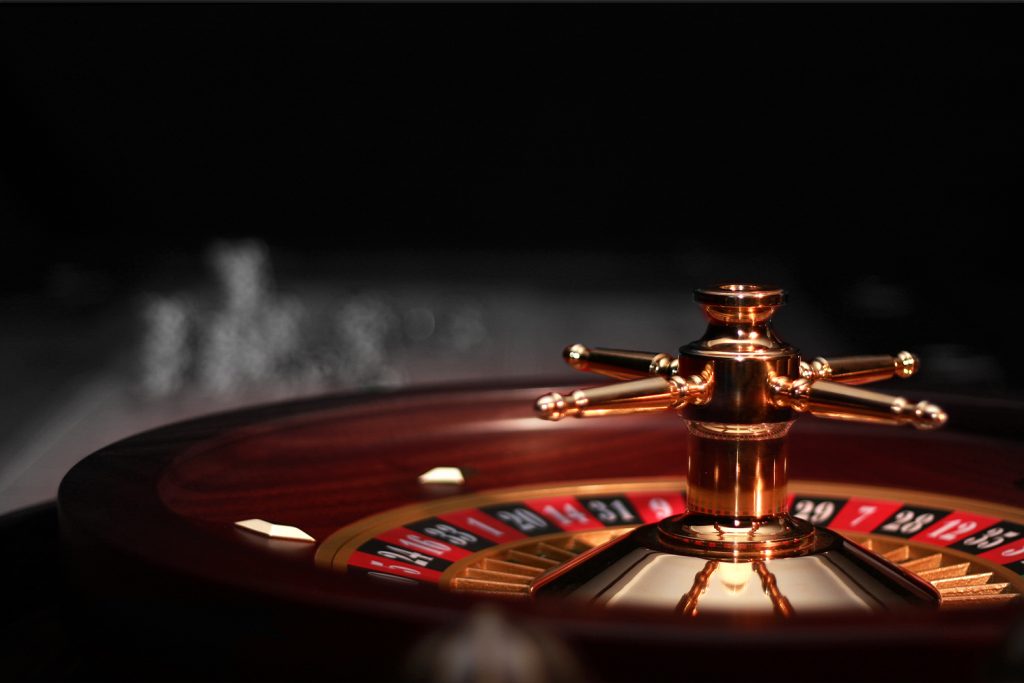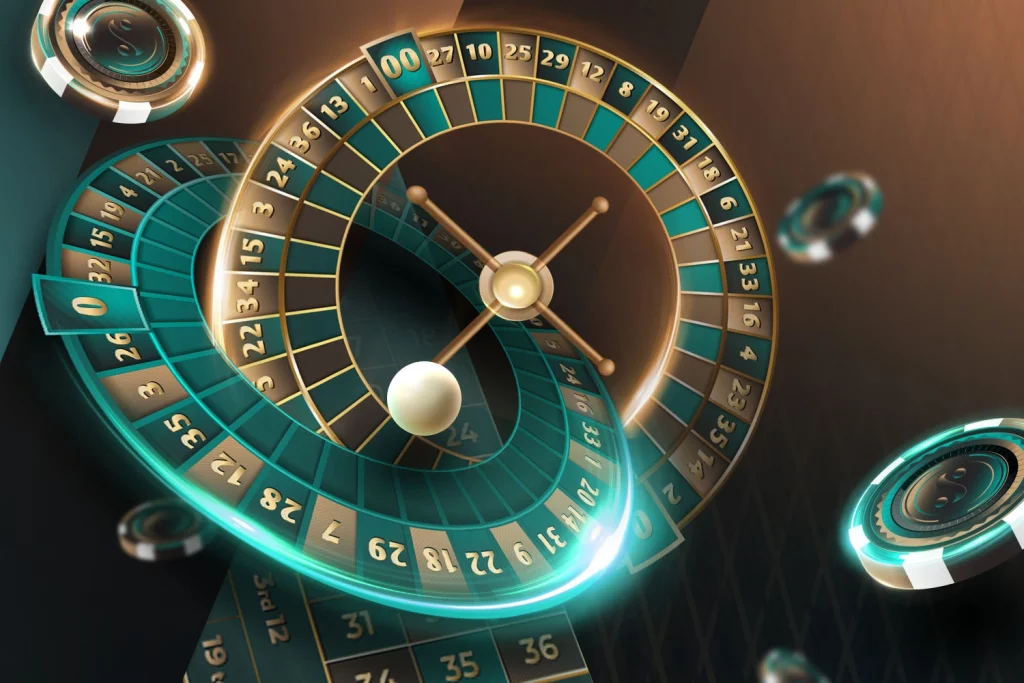I want to begin this post by making it really clear that Roulette is a gambling game and, as such, it depends on luck (or the turn of a wheel, if you’re feeling poetic). Of course, the house edge can fluctuate depending on how you play, but your edge will never ever be 0%. If you can understand and accept that, then you’ll be a much happier player in the long term.
Warnings done and dusted, let’s discuss the notion of applying a strategy to your Roulette gameplay. The Martingale Strategy is one of many frequently touted systems, but it’s easily the most famous. Let’s take a closer look at how this works, and figure out if it even works at all.
[button link=”https://www.skycitycasino.com/games/roulette” type=”big” newwindow=”yes”]PLAY ROULETTE[/button]
What is the Martingale system in Roulette?
The Martingale Strategy, sometimes called the Martingale System, is the most popular (and longest standing) of all the Roulette systems out there. In simple terms it’s a suggested, pre-structured playing pattern for Roulette. It’s based on the premise that the player places even money bets on winning spins, but doubles after losses. Does this sound like a suicide mission? Read more about the Martingale to learn the logic behind the system – if indeed there is any at all.
Where did the Martingale system in Roulette come from?
There’s a reason the Martingale system is the most frequently cited and most often used technique in Roulette strategy. Contrary to what you might think, it doesn’t get its name from its creator. The system was named after Mr. Henry Martingale, who was an owner of one of the most famous gambling houses in Britain in the 18th century. But its exact origins are unknown, save that it was probably born in France at around the same time that Mr Martingale was at his prime.
How does the Roulette Martingale system work?
The logic behind the system is that you should increase your wagers on a losing streak, so that when you eventually hit a win, it will cover your deficit. Some people consider this to be a very dangerous way to operate? But is there math behind the madness?
The first thing you should know is that the system isn’t appropriate for super recreational players who just want to try their luck with $40 and call it a day. Players employing this technique will need a fairly sizeable bankroll. It would also be helpful if the player could make quick mental calculations. Don’t worry, it’s not exactly an Alan Turing level of skill that’s required here!
Now, for the actual method in action. Using the Martingale system, the player can only bet on even money bets. In Roulette, that means just the following:
- Red or Black
- Odd or Even (also known as Impair or Pair)
- High (1-18) or Low (19-36) (also known as Manque or Passe)
Players will also be doubling their bets after each losing spin. This won’t be as crippling as it sounds initially, because you only get started with the table minimum bet. Additionally, each time you have a winning bet, the player must reduce the bet back to the minimum.
Let’s work with the example that the table minimum is $5. You place your very first bet for $5. If it’s a losing spin you play again with a bet for $10. If it’s a winning spin you stash your profit and place your next bet for $5. If it’s another loss, you place your next bet at $20. In theory this system is a clever one. It’s designed to allow the player to accumulate profit on each win, ensuring your bankroll is padded out. This in term allows for long term play.
But when does it end? The system doesn’t provide for any clear cut exit routes, so it’s down to the player’s will power to know when it’s time to call it quits. The best way to do this is by deciding on what profit you want to achieve before you start playing. The minute you hit that number then it’s time to cash out, regardless of whether you’re on some kind of winning streak. And if the wins aren’t coming at all, then you should have a Plan B failsafe in place in the form of a time limit.
[button link=”https://www.skycitycasino.com/blog/roulette/how-to-play-roulette/” type=”big” newwindow=”yes”]HOW TO PLAY ROULETTE[/button]
What are the Pros and Cons of the Roulette Martingale system?
Still not sure if you want to give the Martingale Strategy a try? Maybe this pros and cons list will help:
| Martingale system Pros | Martingale system Cons |
|
|
If not the Martingale Strategy, then what?
Roulette is a game of chance. A ball spins round and round a Roulette wheel, coming to a halt in a space that’s completely outside of the control of the players. Your only deciding factor here is choose where you think the ball will land. Of course there are safer options, like betting on black or red, which increase your chances of success to 50%, but there are no guarantees.That being said, there are still some rules you should take with you to the Roulette table.
Know your odds
Eager to throw your chips down onto the felt and get in on the action? You must be totally clued up about your chances. No? Then slow down there cowboy, the next couple paragraphs could make you a much smarter Roulette player.
In the game of Roulette, there are two betting groups:
- Inside bets
- Outside bets
Inside bets are the more specific bets. They’re called this because they relate to the bets players can place located on the inner section of the table. These deal with specific numbers, and because of the reduced probability of the outcome, the payouts are very generous.
For example, if you bet $1 on number 17, and the ball does indeed land on 17, you’ll win with 35:1 odds ($35 plus your original $1 bet). This is called a straight bet.
You can also split your bet between two numbers that are next to each other on the table. For example betting on 1|2, 2|5, 13|14, 13|16, 25|26, 26|27, 27|30. As long as the two numbers sit next to each other, you can split a bet between them. This bet pays 17:1 and is called a split bet.
With Outside bets players put their chips down in the designated blocks for outside bets, which are situated on the table outside of the chart of numbers (hence the name). These are much lower risk purely because they cover more ground and don’t really get into specifics. The compromise is that the payouts are much lower than what you could experience with inside bets. Take a look for yourself:
- Even/ odd bets (these are self explanatory and involve betting on either and odd or an even number) offer 1:1 payouts
- Red/black bets (these often carry higher limits and involve deciding on the 50/50 chance that the ball will stop on either red or black) offer 1:1 payouts
- High/low bets (this means wagering that the ball will land on 1 through 18 or 19 through 36) offer 1:1 payouts
- Dozens bets (is wagering that the ball will land on 1 through 12, 13 through 24, or 25 through 36) offer 2:1 payouts
- Columns bets (this kind of bet requires the ball to land on a number within one of the table’s 3 columns) offer 2:1 payouts
Bet smart
If you want better odds of winning then you’ll want to go for the outside bets. That’s because they’re less specific and increase your chances of coming predicting correctly. And if you’re feeling particularly brave, you can make multiple outside bets to increase your chances of surfacing a victor once the wheel stops. Inside bets might be far more tempting bet they also involve a level of risk that’s likely to see your chips disappear in a flash.
Pay attention
It might not be a high stakes poker game, but Roulette still requires your constant attention. There are a few things to keep your eye on as you play:
- The wheel and the ball
- Bets placed by other players
- The croupier
- Trends and streaks
Some checks and observations are only possible if you’re playing in a land based casino. For example you won’t have the ability to get close to the wheel if you’re playing online. However, if you’re playing Live Casino the wheel is every bit as real as it would be in a brick and mortar casino.
Keep an eye out for wheel biases if you’re dealing with a physical wheel. Does the ball seem to land in a certain place more often than in others? Keeping an eye on trends in Roulette could actually be an effective betting lead.
Does the way the croupier spin the wheel and release the ball have a direct effect on outcomes? How fast and how long does it spin before settling in a pocket? Only long term observation will tell you this. Of course it could very well be that results are consistently random, but when humans are involved, trends and repetitive behaviours often enter the mix.
Check out your fellow players. Does one person appear to be winning bigger than all the rest? Then perhaps they’ve noticed something you haven’t. Mimic the bets they place and see how you fare. Remember that the beauty of Roulette is in the ability to cover multiple bases within a single spin. Make smart choices and glory could be yours (heq hem – this is not a guarantee).





